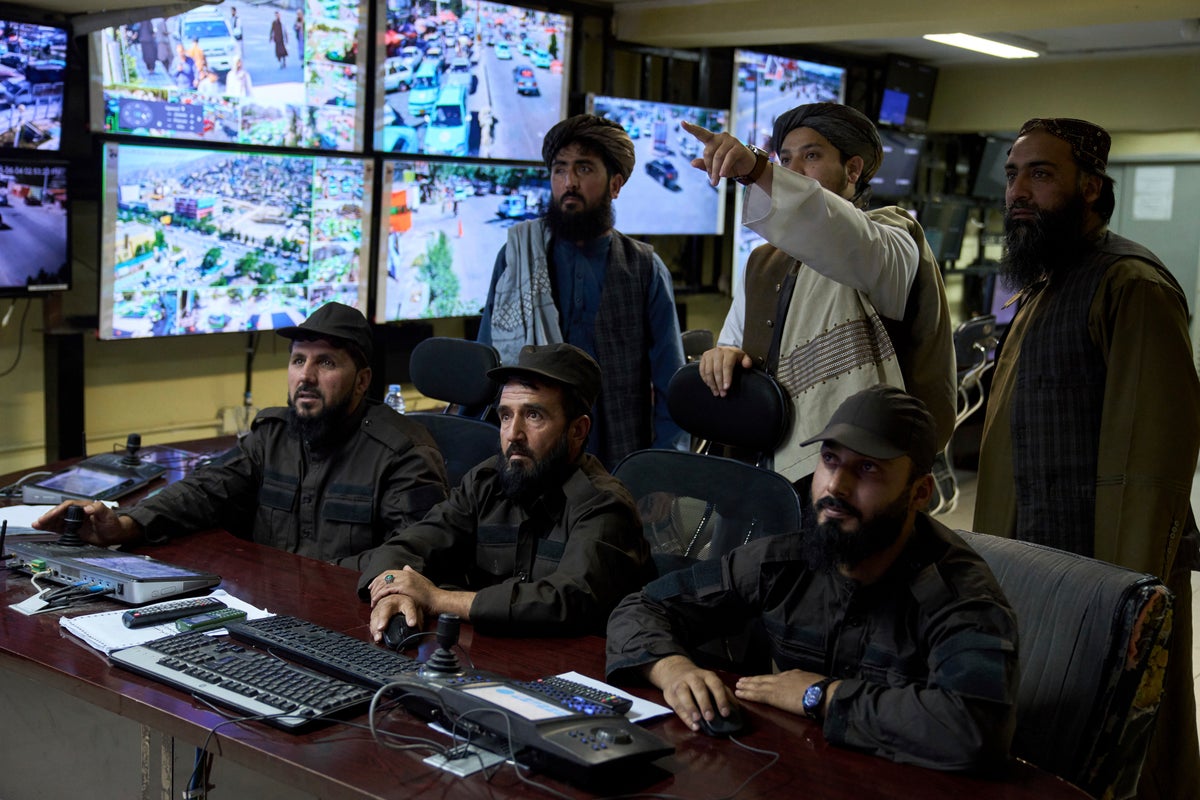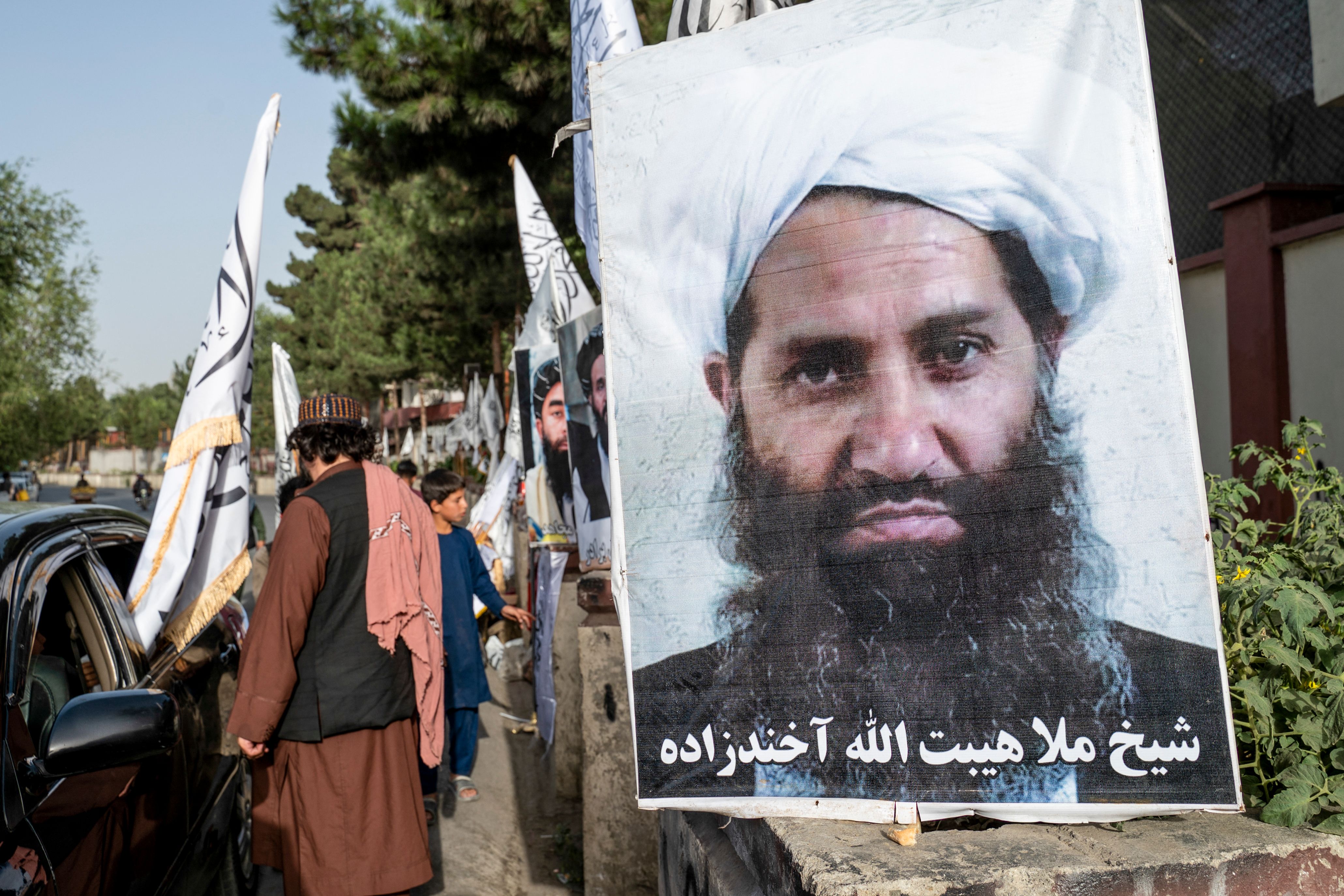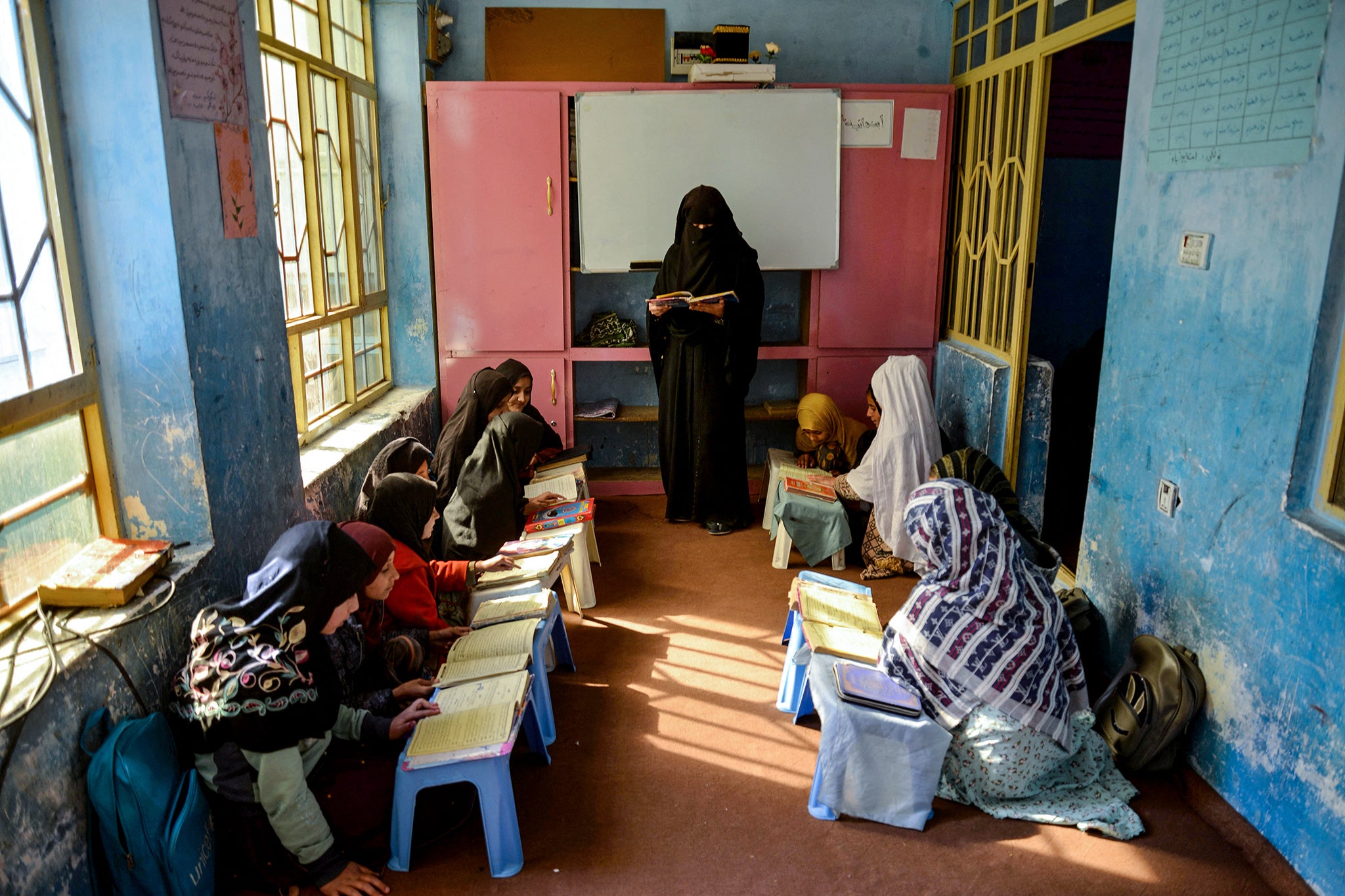
This article first appeared in our partner site, Independent Persian
Taliban supreme leader Mullah Hibatullah Akhundzada has issued a directive ordering authorities across Afghanistan to identify and remove “deviant” books from bookstores, school libraries, universities, and public and private institutions.
Books including Dante’s 14th century allegory The Divine Comedy, Joseph Smith’s The Book of Mormon, Kahlil Gibran’s The Prophet, and Yuval Noah Hariri’s bestselling Sapiens – a wide-reaching history of humankind – have been pulled from circulation. The works of several well-known Islamic scholars and theologians, as well as Iranian intellectuals and Afghan writers, have also been blacklisted.
Independent Persian spoke to publishers and school librarians in Herat and Kabul who confirmed that books on women’s rights, United Nations edicts, the biographies of Taliban critics, secular government structures, and even those about the former Afghan Republic have been labelled “deviant” and are now banned from sale, distribution or public access.
Four Taliban ministries including the Ministry of Guidance, Hajj and Religious Affairs, the Ministry of Information and Culture, the Ministry of Education, and the Ministry of Higher Education held a meeting on Sunday 13 July to reaffirm enforcement of this directive. During this meeting, the Ministry of Religious Affairs announced that, under an order from Taliban leader Akhundzada, a committee has been formed with representatives from all four ministries. This committee is tasked with reviewing books across the country and referring any “suspicious content” to clerics for further scrutiny.
Noor Mohammad Saqib, the Taliban’s Minister for Religious Affairs, referencing what he called a “special decree” from Akhundzada, stated that books written in recent years with the aim of “misleading and corrupting society” and distributed in libraries, educational institutions, and public spaces will now be collected and removed.

He added that guidelines are being developed for religious teachers and clerics so that they can educate the public about such books “in light of Sharia principles”.
Saqib claimed that Afghanistan has not only suffered from military intervention in recent decades but also from what he called “cultural attacks”. He alleged that many foreign cultural institutions operating in Afghanistan aimed to “undermine Islamic and traditional Afghan values”.
Addressing Taliban officials, he said: “It is now our duty to protect and fully introduce this [Islamic] culture to the Mujahid nation [of Afghanistan]”.
Criticising books published under the previous Republic, Saqib said they conflicted with Afghanistan’s Islamic and traditional values and “diverted young people from their true goals”.
He emphasised that now, under Taliban control, authorities have the opportunity to remove such works and replace them with content that is “pure, Islamic and aligned with Afghan values”.
According to the Taliban leader’s decree, any books identified as “suspicious” or “deviant” will be handed over to a group of clerics who will evaluate their content and determine whether they should be banned.
Previously, Taliban agents from the Ministries of Information and Culture, and Promotion of Virtue and Prevention of Vice, had already confiscated hundreds of book titles they labelled “against national interests” or “anti-Islam” from libraries and banned their publication and sale. Other Taliban institutions, including the Ministries of Education and Higher Education, have also restricted access to certain books in schools and universities.

A banned book list issued by the Taliban’s Ministry of Information and Culture and sent to publishers and booksellers last winter prohibited texts that they considered “against national interests, anti-Islam, in opposition to the Islamic Emirate, containing false beliefs, promoting ideas contrary to Islam” as well as works on women’s rights and human rights. Publishers were also given a clear warning that selling these books is completely prohibited, and violators will face punishment.
Publishing professionals in Kabul say there is no clear or standardised process for reviewing books under Taliban rule. Any Taliban member, particularly officers from the Promotion of Virtue ministry, can enter a bookstore or library and ban any book they personally deem anti-Islamic or harmful to national interests.
A Kabul-based publisher, who asked to remain anonymous, told Independent Persian: “Since the Taliban returned to power, not only has Afghanistan’s once-growing publishing industry collapsed, but even book imports from Iran have been restricted. Taliban border agents now inspect all books, cross out images of living beings and deny entry to many titles.”
The publisher added that the Taliban’s Ministry of Information and Culture has created a publishing committee made up mostly of clerics and individuals without higher education. “These people review content, and if a book doesn’t match their beliefs, they label it anti-Islamic or against national interests and block its publication”.
A source in Herat, who works as a literacy advocate, shared three separate lists of banned books from libraries in Herat with Independent Persian. These lists suggest that Taliban censorship is far more extensive than officially acknowledged.
Together, the three lists contain 620 banned titles compiled by the Library Oversight Committee of Herat Schools. Members of this committee have already removed these books from shelves.
The listed books are flagged with terms such as “Shi’ism, praise of traitors, promotion of secularism, democracy, Western freedoms, defence of women, communism, praise of Iran, superstition, anti-Taliban views, UN laws, descriptions of the Republic, praise of music and undesirable content.”
Banned authors include both Afghan writers and prominent figures from the wider Islamic world. For example, the Taliban have banned works like Kitab al-Tawhid by Mohammed ibn Abd al-Wahhab; Four Reforms in the Qur’an by Sayyid Abul A’la Maududi; Social Justice in Islam by Sayyid Qutb; biographies and writings of Jamal al-Din al-Afghani; books by Abdullah Azzam; and numerous Iranian intellectuals like Ali Shariati, Morteza Motahari, and Ramin Jahanbegloo. Books by Yusuf al-Qaradawi, including his well-known The Lawful and the Prohibited in Islam, are also on the list. Many are marked as containing “false beliefs, Shi’ite ideology, or heresy”.
Currently, the Taliban have no formal procedure for reviewing or censoring books. According to reports, decisions about a book’s acceptability are often made arbitrarily and based on personal biases. However, the Ministry of Religious Affairs has said it plans to develop guidelines that will be distributed to imams and teachers so that they can identify “deviant books” and inform the public about them.
Reviewed by Tooba Khokhar and Celine Assaf







